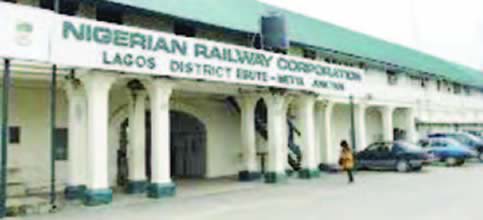The Nigerian Railway Corporation (NRC) has provided an updated report on the Abuja-Kaduna train derailment incident that occurred on Tuesday, August 29, 2024, between Kubwa and Asham stations, revising its initial assessment of the situation. The corporation now confirms that 20 passengers sustained injuries of varying degrees, a significant increase from the initially reported seven. This updated figure reflects a more comprehensive assessment of the passengers involved in the incident and underscores the seriousness of the derailment. The NRC is committed to transparency and accuracy in its reporting as it works to manage the aftermath of this unfortunate event.
Recovery efforts at the derailment site are progressing steadily, according to NRC Managing Director, Dr. Kayode Opeifa. As of September 2, 2024, a locomotive and four coaches have been successfully rerailed and transported to the Idu Station for thorough technical assessment. This achievement was facilitated by the construction of a 100-meter bypass track specifically for this purpose, demonstrating the NRC’s commitment to expedite the recovery process. Work continues at the site to retrieve the remaining locomotive and four coaches, and preparations are underway to ensure their safe and efficient removal. The NRC remains focused on restoring the affected section of the railway line as quickly and safely as possible.
In the wake of the derailment, the NRC has established a dedicated Incident Desk to provide support and assistance to affected passengers and their families. This initiative is part of the corporation’s commitment to passenger welfare and ensuring that those impacted by the incident receive the necessary care and attention. Out of the 583 passengers listed on the train’s manifest, 510 have been successfully contacted. The NRC has also made available dedicated phone lines to address inquiries and provide updates to the public, demonstrating its commitment to open communication and transparency in managing this situation. These lines are staffed by dedicated personnel to ensure that all concerns are addressed promptly and efficiently.
The NRC remains dedicated to restoring full train operations on the Abuja-Kaduna route and is implementing measures to reinforce safety protocols. The corporation understands the importance of this vital transportation link and is working tirelessly to minimize disruption to services. Passenger safety and service reliability are paramount, and the NRC is committed to ensuring that the highest safety standards are maintained. The corporation is conducting a thorough investigation into the cause of the derailment to identify any necessary improvements to its safety procedures and prevent future incidents.
Dr. Kayode Opeifa, Managing Director of the NRC, expressed gratitude for the swift response of security agencies and acknowledged the media’s contribution in providing timely and accurate coverage of the incident. This collaborative effort between the NRC, security agencies, and the media has been crucial in managing the situation effectively and keeping the public informed. He also acknowledged the visit of the Minister of Transportation, Senator Saidu Alkali, to the derailment site, where the Minister commended the ongoing recovery efforts. This high-level visit underscores the importance of the Abuja-Kaduna rail line and the government’s commitment to its restoration.
The derailment of the Abuja-Kaduna train serves as a reminder of the complexities and challenges inherent in operating a railway system. While the NRC is working diligently to restore services and enhance safety measures, incidents like this highlight the need for continuous improvement and vigilance in maintaining the safety and reliability of rail transportation. The NRC’s commitment to transparency, passenger welfare, and the restoration of services is crucial in rebuilding public confidence and ensuring the long-term viability of the Abuja-Kaduna rail line. The corporation is dedicated to learning from this experience and implementing necessary changes to prevent future incidents.














